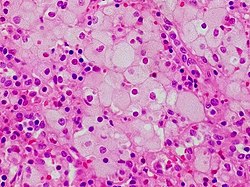ASMD is highly variable and the age of onset, specific symptoms and severity of the disorder can vary dramatically from one person to another

Patients diagnosed with Acid Sphingomyelinase Deficiency (ASMD) and their caregivers have sought inclusion of this rare, genetic condition under the National Policy for Rare Diseases 2023, explaining that it will help create awareness and provide the much-needed support towards diagnosis, treatment.
Also referred to as Neimann Pick Disease, ASMD is a rare progressive genetic disorder that results from a deficiency of the enzyme acid sphingomyelinase, essential for breaking down sphingomyelin - a fatty substance crucial for normal cellular function. ASMD is highly variable and the age of onset, specific symptoms and severity of the disorder can vary dramatically from one person to another, sometimes even among members of the same family. The disorder may be best thought of as a spectrum of disease. At the severe end of the spectrum is a fatal neurodegenerative disorder that presents in infancy (Niemann-Pick disease type A). At the mild end of the spectrum, affected individuals have no or only minimal neurological symptoms and survival into adulthood is common (Niemann-Pick disease type B). Intermediate forms of the disorder exist as well. ASMD is caused by mutations in the SMPD1 gene and is inherited in an autosomal recessive manner.
According to Navinthara Kamath, Founder, Niemann Pick India Charitable Organisation, “My son is an ASMD patient and it took over two years to correctly diagnose him. After years of misdiagnosis and visiting doctors from multiple specialties, Taran was finally diagnosed at the age of 2.5 years. However, the next 10 years were still rather directionless. We approached many doctors to understand if there were treatments available and also explored all kinds of alternative treatments to manage the disease. Luckily for us, we came to know from Dr. Meenakshi Bhat at the Centre for Human Genetics with the Indira Gandhi Hospital, Bengaluru that there is now a treatment (enzyme replacement therapy) available for ASMD patients. Taran was fortunate to get this treatment under the humanitarian program of Sanofi from November 2022 and his condition has improved since then.”
“Today, as we observe the inaugural ASMD Awareness Day in India, it is extremely important to diagnose ASMD in early childhood so therapy can be started early and symptoms can be managed well. Most importantly the child and parents will not have to go through the trauma of visiting multiple doctors and going through years of misdiagnosis. The Ministry of Health and Family Welfare has been kind enough to support the treatment of many rare diseases and we earnestly request inclusion of ASMD as a notified Group 3(a) condition in the National Policy for Rare Diseases,” she added.
Anil Raina, General Manager, Sanofi Speciality Care (India) said, “Sanofi has been at the forefront of launching therapies for rare diseases over the past 40 years, including the recent addition of Xenpozyme for the treatment of Acid Sphingomyelinase deficiency (ASMD). On the commemoration of the first ASMD Awareness Day in India, we join the global community in raising awareness about this debilitating disease. Our unwavering commitment to advancing medical science drives us to invest in research, collaborate with healthcare professionals, and support patients and their families in their fight against ASMD. We believe that every individual deserves a chance at a healthier, brighter future, and our dedication to finding innovative solutions aligns with that belief.”
Another caregiver Shikha Golash, whose 11-year-old son was diagnosed with ASMD in 2015 said, “My son Pratyaksh is suffering from the rarest genetic disease - Niemann Pick. He had a large belly and spleen since birth but when he was 3 years old we came to know about his disease and that treatment is unavailable. We visited many doctors to find out any type symptoms based treatment or any alternative solution to manage his disease. We met Dr Neerja Gupta from AIIMS, New Delhi and with her help, we connected with Sanofi India. His treatment started in October 2022 and a miracle has happened in my son's life because of this medicine. Since Niemann Pick now has a therapy available, we want to get this disease notified in the National Policy for Rare Diseases.”

Subscribe To Our Newsletter & Stay Updated